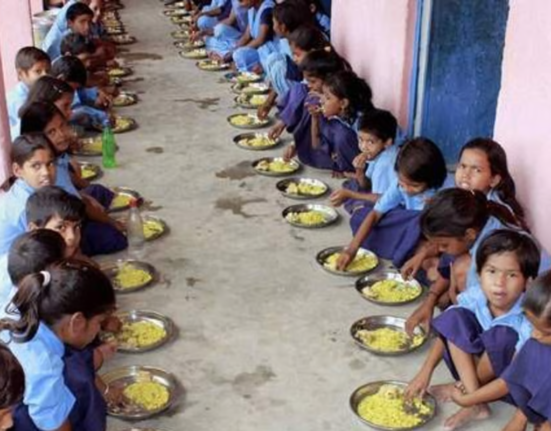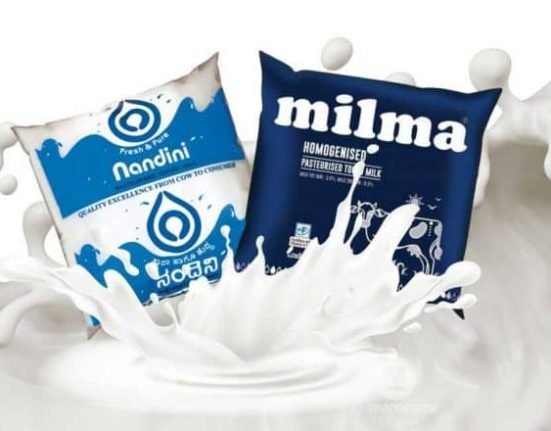The European Commission has recently authorised the import of several genetically modified (GM) maize varieties for use in food and animal feed. Following what the Commission describes as a “comprehensive and stringent” safety assessment, this decision has sparked discussions across the agricultural sector, including the dairy industry. While the authorization is limited to imports and excludes cultivation within the EU, its implications for dairy farmers and feed suppliers warrant careful consideration.
The approved GM maize types underwent thorough scrutiny, evaluating potential effects on human and animal health and the environment. According to the Commission, this safety check provides a scientific basis for allowing these imports into the European market. The authorisation is granted for 10 years, and crucially, all products derived from these GM maize varieties will be subject to the EU’s stringent regulations on labelling and traceability. This ensures that feed producers and, ultimately, dairy farmers are aware of the origin of their feed ingredients.
It’s important to note that while these GM maize varieties can now be imported for feed purposes, their cultivation within the European Union remains prohibited. This distinction highlights the ongoing debate and varying perspectives within the EU regarding the direct cultivation of GM crops. The Commission’s decision to authorize imports despite lacking a qualified majority among member states underscores the legal obligation to act when such scientific assessments are complete.
For the dairy sector, this authorization could have several potential impacts:
- Feed Availability and Cost: Introducing imported GM maize could diversify feed options for dairy farmers. This could lead to more competitive pricing and a more stable supply of maize-based feed ingredients in the maize-based market dynamics.
- Nutritional Considerations: Different GM milk varieties are often engineered for specific traits, such as enhanced nutritional content or pest resistance. Dairy farmers and nutritionists will need to evaluate the nutritional profiles of these imported milk options to determine their suitability for dairy cattle diets and their potential impact on milk production and quality.
- Labelling and Consumer Perception: The EU’s strict labelling rules mean that any feed containing these GM maize derivatives will be identified. This transparency allows dairy farmers to make informed choices about their feed sources. However, it also raises questions about potential consumer perception of dairy products from animals fed with GM feed, even though the GM material is not in the final milk.
- Traceability and Quality Assurance: The traceability requirements associated with these GM maize imports will necessitate robust systems throughout the feed supply chain. Dairy farmers must ensure their feed suppliers adhere to these regulations to maintain the integrity and transparency of their production processes.
In conclusion, the European Commission’s authorisation of GM maize imports for food and feed marks a significant development for the agricultural sector. While the immediate impact on dairy farmers will likely be through the feed supply chain, the industry must stay informed about the availability, nutritional characteristics, and labelling requirements associated with these imported maize varieties. Careful evaluation and open communication within the supply chain will be essential to navigate this decision’s potential opportunities and challenges. Dairy Dimension will continue to monitor this issue and provide further updates and analysis for our readers.
India’s Stance on GM Maize: Policies and Future Outlook
India maintains a cautious approach towards genetically modified crops, including maize. While Bt cotton is the only GM crop currently approved for commercial cultivation in the country, the regulatory landscape for GM food crops is stringent.
Current Policies:
- Strict Regulations: India has put in place rigorous regulations to prevent the entry and sale of unapproved GM food crops and products derived from them.
- Import Requirements: Since March 2021, the Food Safety and Standards Authority of India (FSSAI) has mandated a GM-free certificate or a non-GM origin certificate for the import of 24 specific food crops, including maize (Zea mays). This indicates a clear preference for non-GM sources in the Indian food supply chain.
- Regulatory Framework: The regulation of GMOs and GM crops in India falls under the “Rules for the Manufacture, Use, Import, Export and Storage of Hazardous Microorganisms, Genetically Engineered Organisms or Cells,” 1 enacted in 1989 under the Environment (Protection) Act, 1986. This is further supported by various guidelines and protocols for the evaluation of GM crops at different stages of development. 1. jipmer.edu.in
- Food Safety Act: The manufacture, storage, distribution, sale, and import of food, including GM food, are also regulated under the Food Safety and Standards Act, 2006, implemented by the FSSAI.
- Research and Development: While commercial cultivation of GM maize is not permitted, research and field trials for various GM crops, including maize, are underway in India.
Future Outlook:
- Debate and Deliberation: GM crops remain a sensitive issue in India, with ongoing debates concerning their potential impacts on human and animal health, biodiversity, and socio-economic factors, particularly for smallholder farmers.
- Focus on Research: India continues to invest in research to explore the potential of GM technology in addressing agricultural challenges such as pest resistance, disease management, and nutritional enhancement in various crops, including maize.
- Economic Considerations: With a growing demand for maize in the feed and industrial sectors, coupled with export potential, India may need to consider strategies to enhance maize production. GM maize could be a potential avenue to increase yields and address these demands in the long term. Estimates suggest India’s maize requirement could reach 50 million metric tonnes by 2025.
- Regulatory Evolution: The regulatory framework for GM crops in India might evolve based on scientific advancements, socio-economic considerations, and global developments. The outcome of ongoing research and field trials, as well as the experience of other countries with GM crops, will likely influence future policy decisions.
- Potential for Import Policy Adjustments: While currently focused on ensuring non-GM origins for imported maize, future policies might adapt based on global market dynamics and the availability of GM maize for feed purposes, as seen in the recent EU decision. However, any such changes would likely prioritise rigorous safety assessments and clear labelling.
In summary, India currently has a cautious and restrictive policy regarding GM maize, primarily allowing only non-GM imports for food and feed through strict certification processes. The future outlook involves continued research, careful consideration of potential benefits and risks, and potential evolution of policies based on scientific evidence and socio-economic needs.






